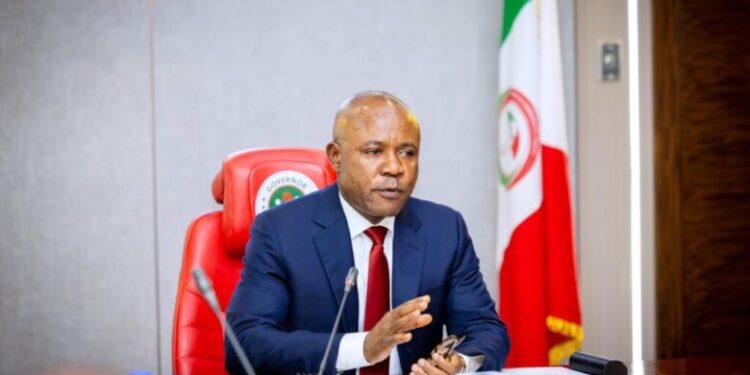In a bold step toward industrial revitalization and clean energy adoption, Enugu State has partnered with Stallion Group, a conglomerate that deals in agriculture commodities and automobiles, to establish an electric vehicle (EV) assembly plant in Owo, Nkanu East LGA. The project is poised to position the state as a major player in Nigeria’s green transportation future.
The initiative forms part of Governor Peter Mbah’s $30 billion GDP vision to transform Enugu from a consumption-based economy into a manufacturing and innovation hub.
The plant will be developed by Stallion MG Automobiles Ltd, a subsidiary of the Stallion Group, one of Nigeria’s leading vehicle manufacturers. The first production phase will target 2,000 hybrid sedans, with plans to scale up into bus assembly. The project also supports Enugu’s youth-focused taxi scheme, empowering locals with dignified employment and ownership opportunities.
Critically, the plant includes a technology transfer framework, turning the factory into a training and research hub for mobility innovation.
Nigeria’s EV market is still nascent but rapidly evolving as states recognize the dual promise of industrial growth and environmental sustainability. Enugu is not alone in this push. Other Nigerian states have taken similar steps toward EV and auto assembly development. Lagos State in collaboration with Metro Africa Xpress (MAX) and Oando Clean Energy launched its electric mass transit buses in 2023.
The Enugu EV project is the latest in a wave of industrial ventures launched under Governor Mbah’s administration. It follows recent commissioning of the Nortra Tractor assembly plant and New-Watson doors manufacturing facility.
These developments are part of the state’s broader Industrial Master Plan, aimed at boosting local content, reducing import dependency, and enabling job-led GDP expansion.
With EV adoption gradually rising, especially in urban areas, and global automakers eyeing Africa’s untapped market, Nigeria’s sub-national governments are now competing for leadership in clean tech infrastructure. Enugu’s project could accelerate regional collaboration, federal incentives, and even attract foreign direct investment (FDI) into the South East corridor.
Get passive updates on African tech & startups
View and choose the stories to interact with on our WhatsApp Channel
Explore




